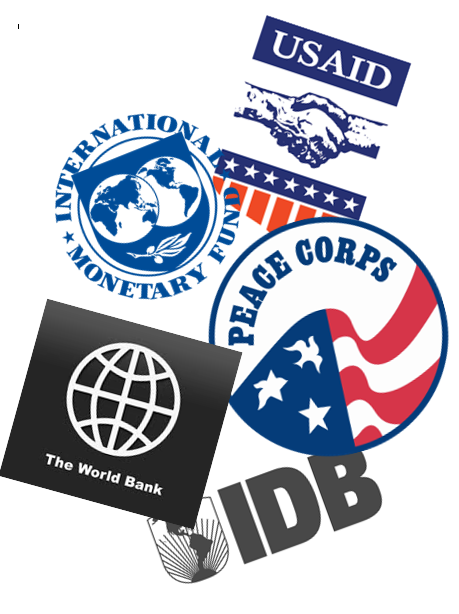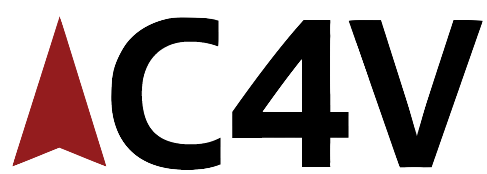More than a Reckoning: Still Crying Out for Change in Foreign Aid

A vibrant exchange of views is now taking place in Washington, DC, home to the largest concentration of people, firms, non-profits, and other institutions engaged in what we have come to view as the “international development industry”. With the upcoming Senate hearings on the nomination of former U.S. Ambassador to the United Nations Samantha Power for the post of Administrator of the U.S. Agency for International Development (USAID), and with leading newspaper editorials circulating on the topic of reforming foreign aid, there appears to be an opening for a substantive reimagination of how, why, and – in some circles – whether we carry out foreign assistance. Pivotal institutions of international development stand at the verge of change. The World Bank is currently led by Trump choice David Malpass, which may mean that the Bank’s future leadership is in question. President Biden may even choose to end the longstanding and ethically problematic practice of constraining World Bank and International Monetary Fund leadership to U.S. and European chosen candidates, respectively. Throughout the Bank and IMF institutional structures, the Global South is significantly underrepresented in decision-making, so will this also change? And will the United Nations see a resurgence of support from President Biden, and an increasingly important role for the UN in international development, all linked to implementing critically needed institutional reforms? Will we see the Peace Corps expand to many more countries, with more (and more diverse) Volunteers?
Possibilities abound, as does need. It is a precious time.
While many countries in the Global North sponsor foreign assistance programs, USAID remains the world’s largest bilateral development organization – yet few who are knowledgeable would disagree that it stands in urgent need for reinvigoration and reform, including rooting out structural racism and systems of favoritism. USAID and other federal foreign affairs agencies are all under critical review and stocktaking following four years of struggle under the corrosive and damaging ideology of Trump’s “America First” doctrine.
A recent and provocative New York Times editorial on international development was focused only on sub-Saharan Africa, although foreign aid is currently administered by more affluent nations (the “Global North”) to nearly all less-developed economies (the “Global South”). In all cases where aid flows from the Global North’s tax revenues to recipients in the Global South, the terms of such assistance are complex, mired in mixed priorities and conflicting assumptions, and heavily weighted in favor of the political, security, diplomatic, and economic interests of the donor governments of the Global North. Governance and management relationships that were intended to generate collaborative and mutually respectful partnerships between multilateral or bilateral donors of the Global North and the relevant government officials and ministries in the Global South have become skewed and distorted by bureaucratic processes characterized by limited transparency, questionable incentives, poor oversight, and inadequate coordination between multiple donors. Many foreign aid programs are designed, funded, implemented, and evaluated with weak, superficial, or no direct participation by the intended beneficiaries: the poorest and most disadvantaged persons in the Global South (and/or by the civil society organizations in the Global South that know them the best).
Reforming – and rethinking – foreign aid is not a new endeavor. Over 20 years ago, the World Bank sponsored a three-volume publication called Voices of the Poor, edited by Deepa Narayan. Using participatory outreach and qualitative measures, directly quoted voices of the poor and disadvantaged selected from over 40,000 people in 50 countries filled these three books and provided often wrenching yet trenchant commentary on the hardships endured in their lives, and the erosion of their hopes for a better future. It transpired that for a few months after each volume was published, these quoted voices seemed to have had remarkable power; these books sliced their way through dense layers of bureaucracy and officialdom to touch the hearts and minds of aid experts and managers who had long ago become well insulated from any direct access to such voices. For that brief period, World Bank staff paused in their normal processes to ponder whether their loan and grant programs really honored the dignity and humanity of the intended beneficiaries, and whether the desperate need for a decent standard of living for all persons everywhere was truly being recognized, even if only incrementally. Sadly, few in the World Bank now even recall these three books, much less the poignant demands for dignity that they contained.
In the mid-2000s, the InterAmerican Development Bank, under the insightful leadership of IDB President Luis Alberto Moreno, established the Initiative on Social Capital, Ethics, and Development (ISED). This Initiative worked diligently to raise awareness of ethical and moral issues at the heart of development throughout Latin America and the Caribbean, and to listen attentively to the concerns of the poor. It was, however, an initiative before its time, and despite generous funding from the Norwegian government, ISED was abandoned after Moreno stepped down. A chance to change a paradigm was squandered.
We cannot afford to squander our current opportunity to rethink foreign aid and international development. We know that the problems in the current aid paradigm are not limited to the layered bureaucracies and multiplicity of actors, objectives, incentives, missions, and political maneuverings within the highly competitive aid industry that now exists, or to the overlay of ideologically vulnerable legislatively approved funding that is evident in the relatively scarce funds that are allocated to very specific uses. It is time to acknowledge that the Global South’s “junior partner” role in the relief and development aid distribution processes must change, while at the same time recognizing that the Global South also must do more to put its own house in order. Answers must be found to the many legitimate structural, procedural, and ethical questions regarding the effectiveness, priorities, and motivations of some of the Global South government officials (and even some of the local and influential employees of the Global North aid missions) with whom the Global North engages as it disperses foreign assistance. The vast differences seen in the elevated standard of living of the governing elites within Global South governments and the (thankfully) increasing participation of well-educated local technical and academic experts can unfortunately compound the separation between the rich and the poor.
With Global North and elites among the Global South essentially managing – and to a considerable extent often inappropriately benefitting from international relief and development funding and programming – there seems to be a lack of clarity or consensus as to what this whole relief and development venture is about, or what it ought to be about. Foundational, strategic, and motivational discussions regarding overcoming increasing inequalities and respecting the universality of human dignity are not what currently characterizes or guides the “aid industry” paradigm. Even where very commendable progress has been made, such as in the articulation of the Sustainable Development Goals and the broadening of a base of support in this direction, the focus remains on income inequality more than on structural inequalities. Yes, countries where incomes have grown are home to more than 70 per cent of the global population, but with income and wealth increasingly tightly concentrated at the top. For the remaining countries where income has not grown, the structural challenges of inequality seem to be largely ignored or inadequately addressed by our present system. The urgent need to overcome corrosive social and economic exclusion, entrenched gender and racial inequalities, deep and often violent ethnic divisions, and other forms of marginalization fail to receive the requisite attention from our current international relief and development structures and activities. This must change.
The increasingly important and rapidly growing role of private investment and trade is often cited as deserving more attention than traditional (and much less well funded) government-to- government foreign aid. The varied development impacts of private sector investments and global trade (licit and illicit) – all of which are loosely governed by global market mechanisms built upon an international “playing field” that is anything but level or fairly regulated between rich and poor economies – can be argued to dwarf whatever development that can be attributable to foreign aid. So why should ODA – official development assistance (i.e., aid that is funded by national budgets of donor countries) – continue?
One clear argument for continuing ODA is that only governments have the capacity, the motivation, and the moral obligation to reign in the exponential rise in global inequalities. As observed by Oxfam this year, “extreme inequality is out of control”, and while millions of people are living in extreme poverty, very few people are enjoying extreme wealth. The rich live a profligate life and, as the saying goes, “they are stinkingly rich or obscenely so”. Around the world the number of billionaires is increasing, yet as those numbers grow the number of the world’s poorest is also increasing. By now, the reasons are well known; they include but are not limited to the reluctance of many governments to adequately or appropriately tax rich corporations and wealthy individuals, the historical legacy of exploitation of the poor countries of the Global South, and the inappropriate political prioritization by many Global South governments of the needs and preferences of their elites, and the imposed priorities set by Global North donors. Such preferences and priorities often take precedence over urgent public social investments including quality education, decent health care, proactive measures to mitigate natural disasters, investments in green technologies and climate change adaptations, and the provision of essential infrastructure. Widespread indifference, as measured by low funding levels (compared against the intensity of need) and limited (if any) participation in decision-making by women and all who are marginalized is evident in the persistence of patriarchy and in other forms of social and economic exclusion. This continuing lack of truly inclusive development undercuts the cultivation of capabilities that would spur innovation and the achievement of development benefits for those who are in greatest need.
This is a moment of opportunity – the opportunity to think large but also to think morally. It is the time to consider feminist concepts of foreign assistance. It is the time to look at local cultural resources – for example, the inclination of African justice systems to avoid the winner-take-all mentality, to instead seek just solutions to conflicts over resources and opportunities under which every stakeholder takes a share, as expressed in an African proverb that “it is the hearts that fill the available space and not the physical bodies”. We could all learn much from being open to such an accommodative spirit.
More than anything else, however, there is the need to listen – and listen well – to the voices of the poor. They are still crying out, and thanks to the Internet their voices are more difficult to ignore. They must be allowed and encouraged to participate as we seek to forge durable solidarity and effective relief and development institutions anchored in mutual respect between all people in all countries. We must build a durable consensus among all who are able that they ought – by reason of control over allocation of wealth, by dint of care and compassion, through sense of mission and principle, and as merited by skill and experience – to partner in an explicitly shared moral obligation to come to the aid of those who suffer and who are fundamentally disadvantaged because of the inequitable way the world order is now structured. And, in the spirit of recognizing that aid informed by moral discourse need not be the stuff of idle speculation and guilt-ridden angst, we can pragmatically start with a much more robust commitment to creating a more equitable world in which the Sustainable Development Goals can be achieved, and through a reinvigoration of our shared commitment to the Universal Declaration of Human Rights.
Prof. Byaruhanga Rukooko,
Department of Philosophy & Development Studies
Makerere University, Kampala, Uganda
Dr. Chloe Schwenke,
President and Founder
Center for Values in International Development


